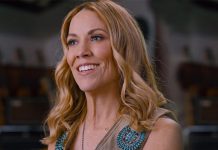Will Smith has revealed he was in a bit of shock after being told by his doctor that he had a precancerous polyp removed after undergoing a routine colonoscopy.
The 51-year-old made fun of passing the threshold of getting a regular colonoscopy at the age of 50 by making a video of it and posting it on YouTube.
However, things went a bit sour when he woke up to hear the unsavory news of having had a polyp that could have transformed into colon cancer.
On Wednesday, Smith told Ellen DeGeneres that he was “left reeling for days.” He said, “I thought it was fun, I was gonna vlog it, you know?”
“So, we do the whole thing and I’m vlogging. And I was like, ‘Hey, it’s time now we’re gonna do – let’s do the final piece where the doctor tells me everything,’” he added.
And when his doctor told him they have removed a polyp, Smith said, “I was like… ‘that’s not funny.’ All of a sudden, it turned very real, you know? It was just a good thing that they removed it and it was really great.”
The CDC says, “Colorectal cancer affects men and women of all racial and ethnic groups, and is most often found in people who are 50 years old or older.”
“Colorectal cancer is the second leading cancer killer in the United States,” according to the CDC. “Colorectal cancer screening saves lives. Screening can find precancerous polyps—abnormal growths in the colon or rectum—that can be removed before they turn into cancer.”
Patients have a better chance of getting rid of precancerous polyp before it is too late if it is detected and removed early, which is why annual colonoscopy screening after 50 is extremely important.
Smith told DeGeneres that the diagnosis was a wake-up call for him. He said, “It is so important to take those health issues very seriously and go and I’m telling you, have yourself checked out! They caught it early. It was done.” If you are 50 or above, get screened now, advises CDC. See your PCP if you think you may be at an increased risk of getting colon cancer, especially if you have a strong family history.























